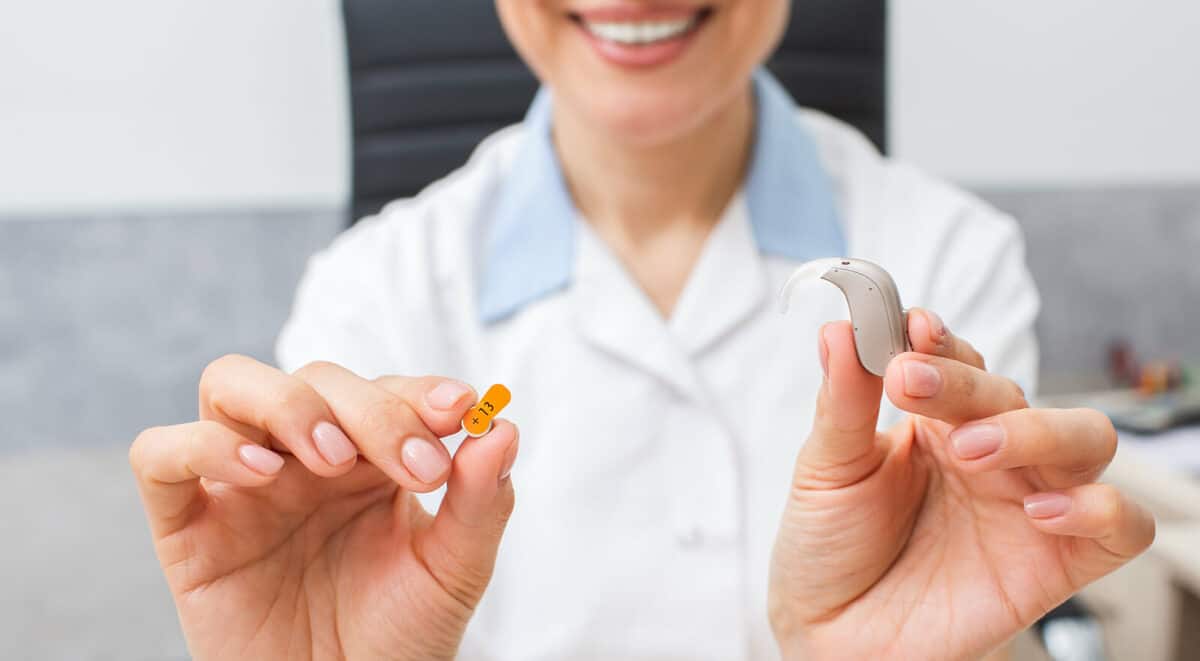- Fall TV Premieres and Using Hearing Aid Connectivity for Better Sound - October 15, 2024
- Answering Common Questions About Hearing Aids - October 5, 2024
- The Role of Artificial Intelligence in Hearing Aid Technology - September 28, 2024
Hearing aids have revolutionized the lives of millions of individuals with hearing loss. These remarkable devices, however, rely heavily on batteries to function effectively. Getting the most out of your hearing aid batteries is crucial not only for your convenience but also for ensuring uninterrupted access to the world of sound. In this article, we will explore valuable tips and tricks to optimize the performance and longevity of your hearing aid batteries.
Understanding Hearing Aid Batteries
Before delving into battery optimization strategies, it’s essential to understand the types of batteries commonly used in hearing aids. As of my last knowledge update in September 2021, hearing aids predominantly use four types of batteries:
- Zinc-Air Batteries (Zn-Air): These are the most common type of batteries for hearing aids. They are available in different sizes and are activated when a tab is removed, allowing air to enter and activate the chemical reaction that powers the hearing aid.
- Silver-Zinc Batteries (Ag-Zn): Silver-zinc batteries offer longer life and higher energy density compared to zinc-air batteries. However, they are less commonly used due to their higher cost.
- Lithium-Ion Rechargeable Batteries: Rechargeable batteries have gained popularity in recent years due to their eco-friendliness and cost-effectiveness. They are typically used in behind-the-ear (BTE) hearing aids.
- Disposable Alkaline Batteries: While less common, some hearing aids use disposable alkaline batteries, similar to those found in common household devices.
How to Make The Most of Your Batteries
- Choose the Right Battery Type
Selecting the appropriate battery type for your hearing aid is paramount. Consult with your audiologist or hearing care professional to determine the best fit for your specific device. Consider factors such as size, power requirements, and lifestyle when making your decision. Keep in mind that rechargeable batteries may be more convenient in the long run, though they may require a different hearing aid model.
- Store Batteries Properly
Proper storage can significantly extend the lifespan of your hearing aid batteries. Keep them at room temperature in a dry environment. Avoid exposing them to extreme temperatures or humidity, as these conditions can diminish their performance.
- Observe the “Use By” Date
Hearing aid batteries typically come with a “use by” or expiration date. Always check this date when purchasing batteries and make sure you use them before they expire. Expired batteries may not provide optimal power output, resulting in reduced hearing aid performance.
- Activate Zinc-Air Batteries Correctly
For zinc-air batteries, activation occurs when you remove the tab, allowing air to interact with the chemicals inside. To maximize their lifespan, follow these steps:
- Remove the tab and let the battery sit for 1-2 minutes before inserting it into your hearing aid. This allows the battery to reach its full potential.
- Keep spare batteries in their original packaging to prevent unintentional activation.
- Turn Off Your Hearing Aid When Not in Use
When you’re not using your hearing aid, turn it off to conserve battery power. Some hearing aids have a manual switch, while others turn off automatically when placed in their charging case (for rechargeable models).
- Keep Your Hearing Aid Clean
Regularly clean your hearing aid to prevent blockages that can drain battery power. Use a soft, dry cloth to wipe away moisture, earwax, and debris. Ensure that the microphone and sound outlet remain unobstructed.
- Use Accessories Wisely
Accessories such as remote controls, Bluetooth connectivity, and wireless streaming can be convenient but can also drain your hearing aid batteries faster. Use these features judiciously and consider disabling them when not needed.
- Hearing Aid Maintenance
Regular maintenance checks with your hearing care professional are essential. They can ensure that your hearing aid is functioning optimally, including checking for any battery-related issues.
- Invest in a Battery Tester
A battery tester is a handy tool that can help you monitor the charge level of your hearing aid batteries. This allows you to replace them before they run out of power unexpectedly.
- Consider Rechargeable Options
If your lifestyle allows for it, consider switching to a hearing aid model with rechargeable batteries. These batteries can last for several years with proper care and eliminate the need for constantly buying and disposing of disposable batteries.
Wrap Up
Your hearing aid batteries are the lifeline of your device. By following these tips and best practices, you can maximize the lifespan of your batteries, ensure consistent performance, and enjoy uninterrupted access to the sounds of life. Remember to consult with your hearing care professional for personalized advice and recommendations based on your unique needs. With the right care and attention, you can make the most out of your hearing aid batteries and continue to experience the world with clarity and confidence.
If you have any questions or would like to schedule your next appointment, please contact us.

